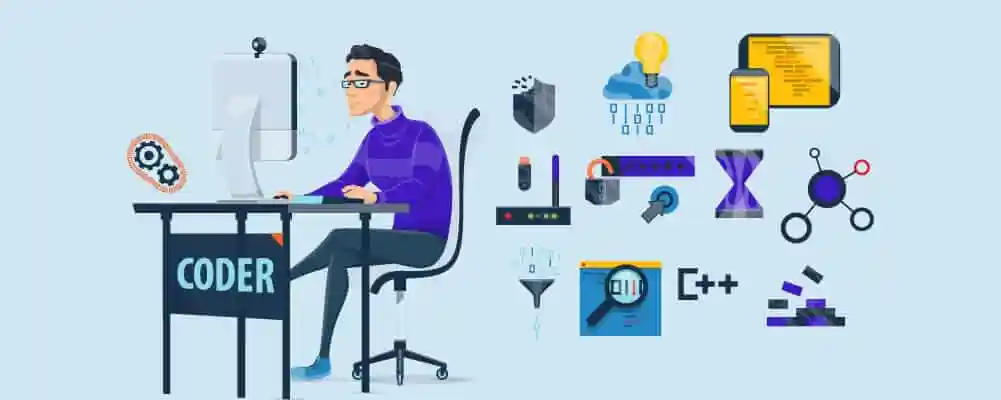Coding is a valuable skill in today’s digital age, opening up a world of possibilities for problem-solving, creativity, and career opportunities. If you’re new to coding, this beginner’s guide will help you get started and provide a roadmap for progressing in your coding journey.

1. Understand the Basics:
Before diving into coding, familiarize yourself with the fundamentals. Understand what coding is, its purpose, and the different programming languages available. Explore the concepts of variables, data types, loops, conditions, and functions. Online tutorials and beginner-friendly coding courses can help you grasp these foundational concepts.
2. Choose a Programming Language:
There are numerous programming languages to choose from, each with its own strengths and areas of application. Some popular languages for beginners include Python, JavaScript, and Ruby. Research different languages and consider factors such as ease of learning, community support, and relevance to your interests or career goals. Starting with a beginner-friendly language can help you build a strong foundation.
3. Set Clear Goals:
Establish clear goals for your coding journey. Determine what you want to achieve, whether it’s building websites, developing mobile apps, or pursuing a career in software engineering. Having specific goals will help you stay motivated and focused on your learning path.
4. Learn from Online Resources:
Take advantage of the wealth of online resources available for learning coding. Online coding platforms, tutorial websites, and video-based courses offer step-by-step guidance for beginners. Some popular online resources include Codecademy, Coursera, FreeCodeCamp, and Khan Academy. Explore these platforms and find the learning style that suits you best.
5. Practice, Practice, Practice:
Coding is best learned through hands-on practice. Apply what you’ve learned by working on coding projects or solving coding challenges. Practice helps reinforce your understanding of concepts, improves problem-solving skills, and builds confidence. Join coding communities and participate in coding challenges or collaborate on open-source projects to gain practical experience and learn from others.
6. Seek Support and Collaboration:
Don’t be afraid to ask for help and seek support from the coding community. Online forums, coding communities, and social media groups provide opportunities to connect with experienced coders who can answer your questions and provide guidance. Collaborating with others on coding projects fosters a supportive learning environment and exposes you to different perspectives and approaches.
7. Build a Portfolio:
As you progress in your coding journey, start building a portfolio of projects that showcase your skills and accomplishments. These projects can be personal websites, mobile apps, or contributions to open-source projects. Having a portfolio demonstrates your practical experience and can be beneficial when applying for coding jobs or freelance opportunities.
8. Continuously Learn and Stay Updated:
Coding is a dynamic field, with new technologies and frameworks emerging regularly. Stay updated with industry trends, new programming languages, and best practices. Attend coding workshops, webinars, or local meetups to network with other coders and learn from industry professionals. Continuous learning is key to staying relevant and expanding your coding capabilities.
Conclusion:
Embarking on a coding journey can be exciting and rewarding. By understanding the basics, choosing a programming language, setting clear goals, learning from online resources, practicing regularly, seeking support, building a portfolio, and staying updated, you can progress steadily and gain the skills needed to excel in coding. Remember, patience and perseverance are essential as coding is a skill that takes time and effort to master. Embrace the learning process, embrace challenges, and enjoy the journey as you become a proficient coder.